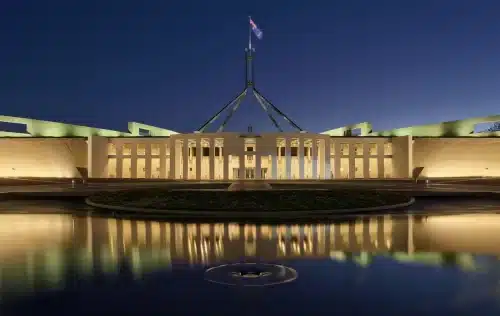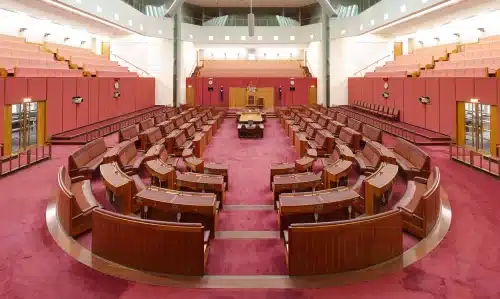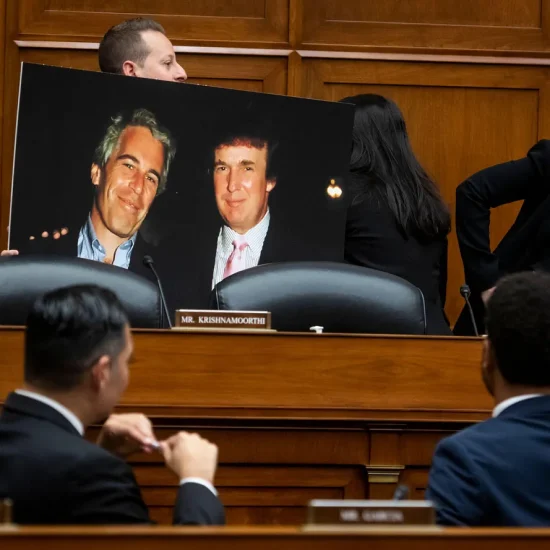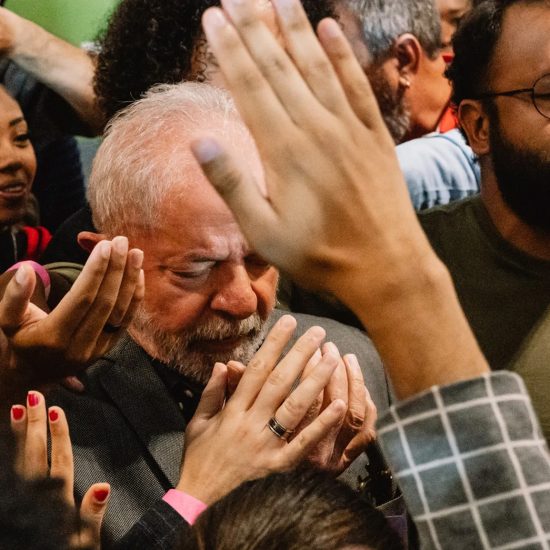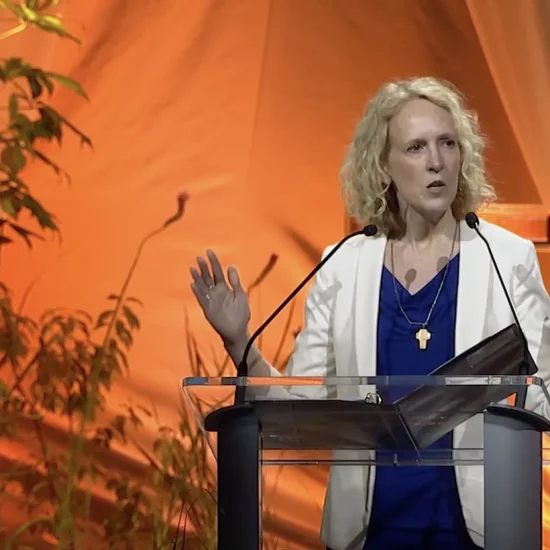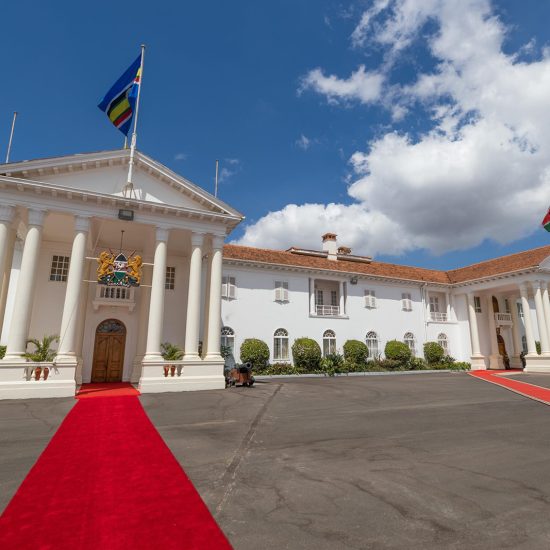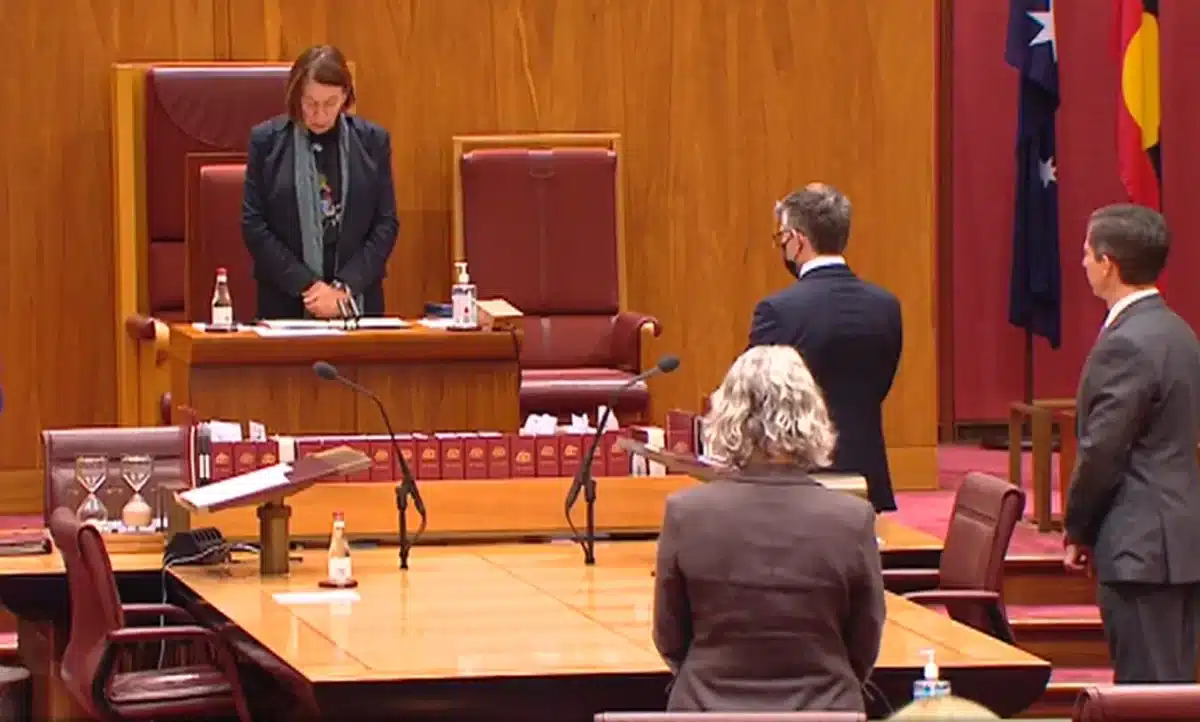
The new president of the Australian Senate wants to end a 121-year daily tradition for the upper chamber in her nation’s Parliament. She wants that august body to stop saying the Lord’s Prayer.
“On the one hand we’ve had almost every parliamentary leader applaud the diversity of the Parliament, and so if we are genuine about the diversity of the Parliament we cannot continue to say a Christian prayer to open the day,” Senate President Sue Lines explained last week. “Personally, I would like to see the prayers gone. I’m an atheist. I don’t want to say the prayers. If others want to say the prayers, they’re open to do that.”
She acknowledged it’s not something she can just order since such a change requires a vote from the full Senate. But that likely won’t occur since many of her colleagues disagree. In fact, the leaders of her own Labor Party insisted the policy would not change, saying they “share the view that the prayer should continue to be read at the commencement of each sitting day.”
Member of Parliament Bob Katter went further as he claimed Lines’s comments proved Christians were being persecuted — and his other “evidence” included investigations of sexual abuse allegations against Lutheran Archbishop Peter Hollingsworth and Catholic Cardinal George Pell. So, Katter held up a Bible and called on people to support that book despite the persecution (and with an incoherent reference to the Holocaust).
“You believe in this book, you’re going to be persecuted. They’re coming for you. So, stand up,” he declared. “Six million people were sent to the gas chambers in Germany because they believed in this book.”
“Is it an unreasonable thing to quote from a book that more than half the population is committed to? In Australia it is,” Katter added as he criticized Line’s suggestion they not open with the prayer. “And now we have been told today by some that we cannot say prayers in the Parliament. We can show allegiance to some lady in England, but we cannot say prayers.”
Let’s put aside the question of whether Australia should continue to recognize Queen Elizabeth II as head of state (though as patriotic, red-blooded Americans, we say they should ditch the monarchy and maybe also dump some tea in the harbor because, well, freedom). But the question of prayers in Parliament deserves greater attention — especially as some Australians quickly pushed back to defend the governmental readings of the prayer.
Political commentator Samantha Maiden argued the reciting should continue since “it’s part of the Christian tradition of Parliament.” She added, “You are not required to say the prayer if you don’t believe in it, you don’t have to turn up. I just think it’s part of history and I don’t have a problem with that remaining in situ.”
While it might be that true that members of Parliament could skip the prayer that’s read each day of session in both the House and Senate, Maiden’s remark isn’t true for Senate President Lines, who literally has to stand at the podium and read the prayer as she leads the chamber. Thus, she’s already stood there reciting the words she doesn’t believe in this act of political theater.
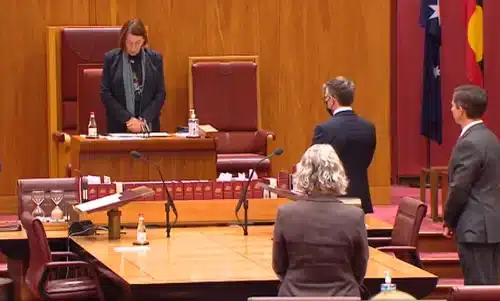
Screengrab as Australian Senate President Sue Lines opens the daily session on Aug. 4, 2022, by reading the Lord’s Prayer.
This prayer practice and the new debate around it offers fertile ground for thinking about faith and government — with lessons not just for our friends down under. So, in this issue of A Public Witness, we take off on an Australian adventure. We kick things off like kangaroos to discover the relationship between church and state for the Aussies. Then we curl up like koalas to reconsider the wild text known as the Lord’s Prayer.

